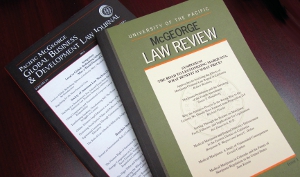Document Type
Article
Publication Date
2022
Abstract
Everyone needs a home. But exclusionary zoning ordinances in many communities prevent low-income and moderate-income families from securing affordable homes, disproportionately harming people of color. Because these ordinances satisfy the rational basis test, they have been immune from substantive due process attack. This Article provides a new method to challenge the constitutionality of exclusionary zoning.
For decades, the Supreme Court has recognized that the Due Process Clause of the Fourteenth Amendment protects the right to “establish a home.” The Clause was adopted, in part, as a response to the “Black Codes” enacted by southern states in the post-Civil War era that prohibited Black Americans from buying or leasing homes. The Court has frequently mentioned the right in dicta but has never squarely relied on it to reach a decision. Perhaps for this reason, it has been overlooked by scholars.
This Article is the first piece of legal scholarship to explore the right to establish a home. This is a negative right: it bars the government from unduly interfering with a person’s ability to rent or buy a home. The Article demonstrates that this right is a fundamental right for the purpose of substantive due process analysis, like the right to marry or the right to raise children. Accordingly, a law that infringes the right must be evaluated under either the strict scrutiny or intermediate scrutiny tests. Under either
Publication Title
GEO. WASH. L. REV.
ISSN
0016-8076
Volume
90
Recommended Citation
John G. Sprankling, The Constitutional Right to “Establish a Home,” 90 Geo. Wash. L. Rev. 632 (2022).



